Haaretz Investigation: Israeli Army Uses Palestinian Civilians to Inspect Potentially Booby-trapped Tunnels in Gaza
Aug 13, 2024
'Our lives are more important than their lives': Gazans not suspected of terrorism are detained and sent as human shields to search tunnels and houses before IDF soldiers enter, with the full knowledge of senior Israeli officers, several sources say; IDF claims this practice is forbidden
At first it's hard to recognize them. They're usually wearing Israeli army uniforms, many of them are in their 20s, and they're always with Israeli soldiers of various ranks.
But if you look more closely, you see that most of them are wearing sneakers, not army boots. And their hands are cuffed behind their backs and their faces are full of fear. The soldiers call each of them a shawish, an obscure Arabic word of Turkish origin meaning sergeant.
Random Palestinians have been used by Israeli army units in the Gaza Strip for one purpose: to serve as human shields for soldiers during operations.
"Our lives are more important than their lives," soldiers were told. The thinking is that it's better for the Israeli soldiers to remain alive and for the shawishim to be the ones blown up by an explosive device.
This description is one of many obtained by Haaretz, some from combat soldiers, others from commanders. The picture that emerges: In recent months, Israeli soldiers have used human shields in this way all over Gaza; even the chief of staff's office knows.
Soldiers choose Gazans for the missions and bring them to the brigades and battalions operating in the Strip. "There is pride in it," said a source who took part in some of the "locating" work.
"The senior ranks know about it," the source said. The army has played innocent despite footage shown on Al Jazeera about two months ago. Israeli soldiers can be seen dressing Palestinian detainees in uniforms and flak jackets, putting cameras on them and sending them into badly damaged houses and tunnel entrances with their hands bound by plastic ties.
![]()
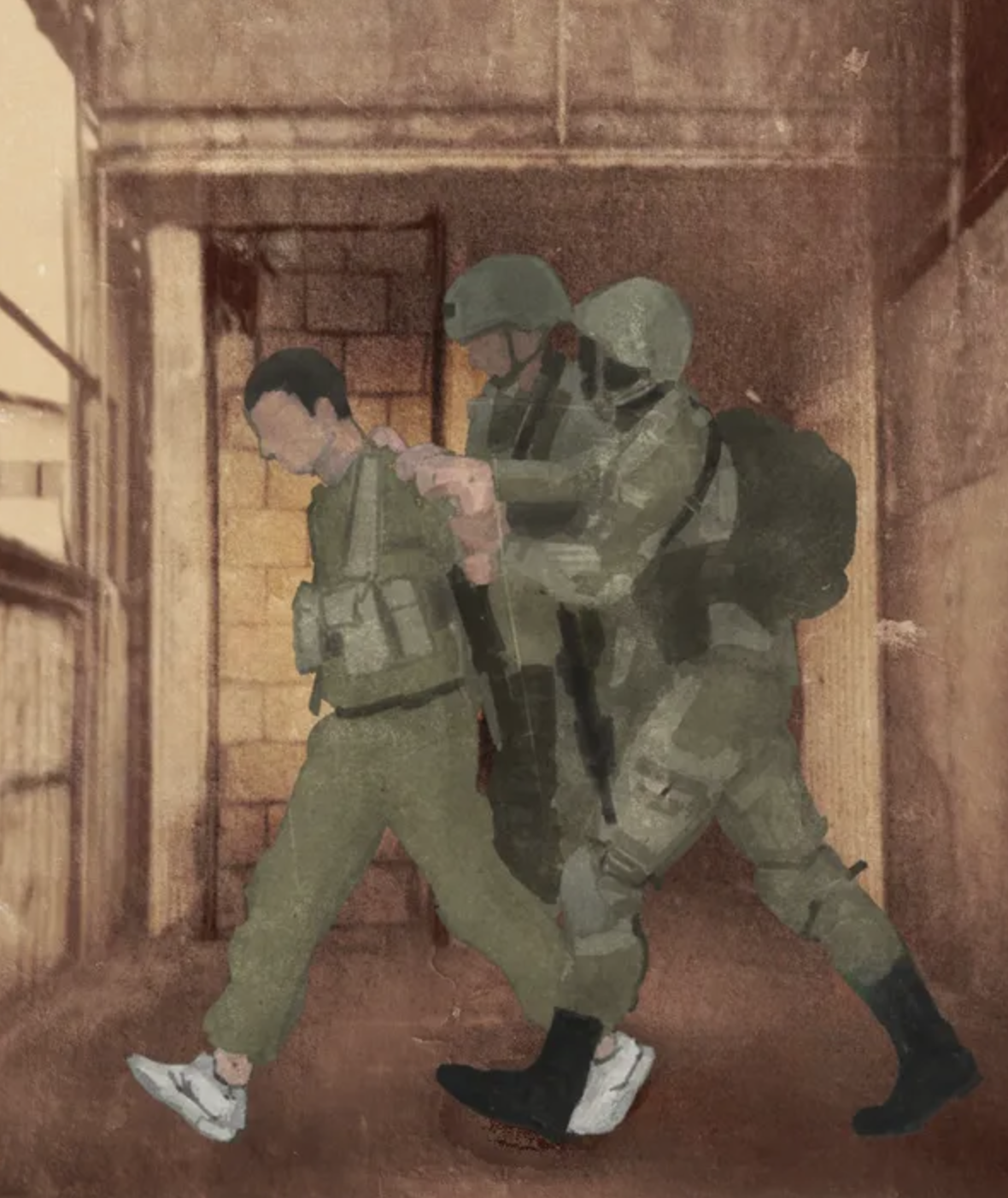
An illustration based on a photograph from an operation. Illustration: Nadav Gazit
The Americans are furious, though Vedant Patel, a State Department spokesman, has said that the Israel Defense Forces is investigating the incidents and that the evidence in the videos does not reflect the IDF's values and violates rules and regulations.
"When I saw the report from Al Jazeera, I said: 'Ah, yes, it's true,'" a combat soldier in a conscript IDF brigade who took part in the use of Gazans as human shields told Haaretz. "And then I saw the IDF's response, which totally doesn't reflect reality. It's done with the knowledge of the brigade commander, at the least."
About five months ago, two Palestinians were brought to us. One was 20 and the other was 16. We were told: 'Use them, they're Gazans, use them as human shields.'
A soldier in a conscript army brigade (Some of the soldiers' comments in this article have also been told to the nongovernmental organization Breaking the Silence.)
The soldier said that in the IDF, "they know that it's not a one-time incident of a young and stupid company commander who decides on his own to take somebody."
The footage published by Al Jazeera: https://www.youtube.com/watch?v=7CfmBlu-qo4
There is also evidence that in some cases, minors or the elderly are used. "There were times when really old people were made to go into houses," one combat soldier said. If the Palestinian knows Hebrew, that's an advantage for the IDF; when Gazans are used in buildings and tunnels, they need to report to the forces outside.
As one soldier put it, Palestinians are told: "Do one mission of ... a [tunnel] shaft and you're free."
Still, even though some Palestinians are required to remain with a unit "only" for 24 hours, others wind up staying for two days or even a week. "When you're inside this thing, you don't know how to say what's okay," the soldier said. "What's certain is that it's a horrible feeling."
For its part, the IDF Spokesperson's Unit said: "IDF instructions and orders prohibit the use of Gazan civilians caught in the field for military missions that pose a deliberate risk to their lives. The IDF's instructions and orders on the subject have been made clear to the forces. Upon receipt of the request, the allegations were forwarded to the relevant authorities for review."
![]()
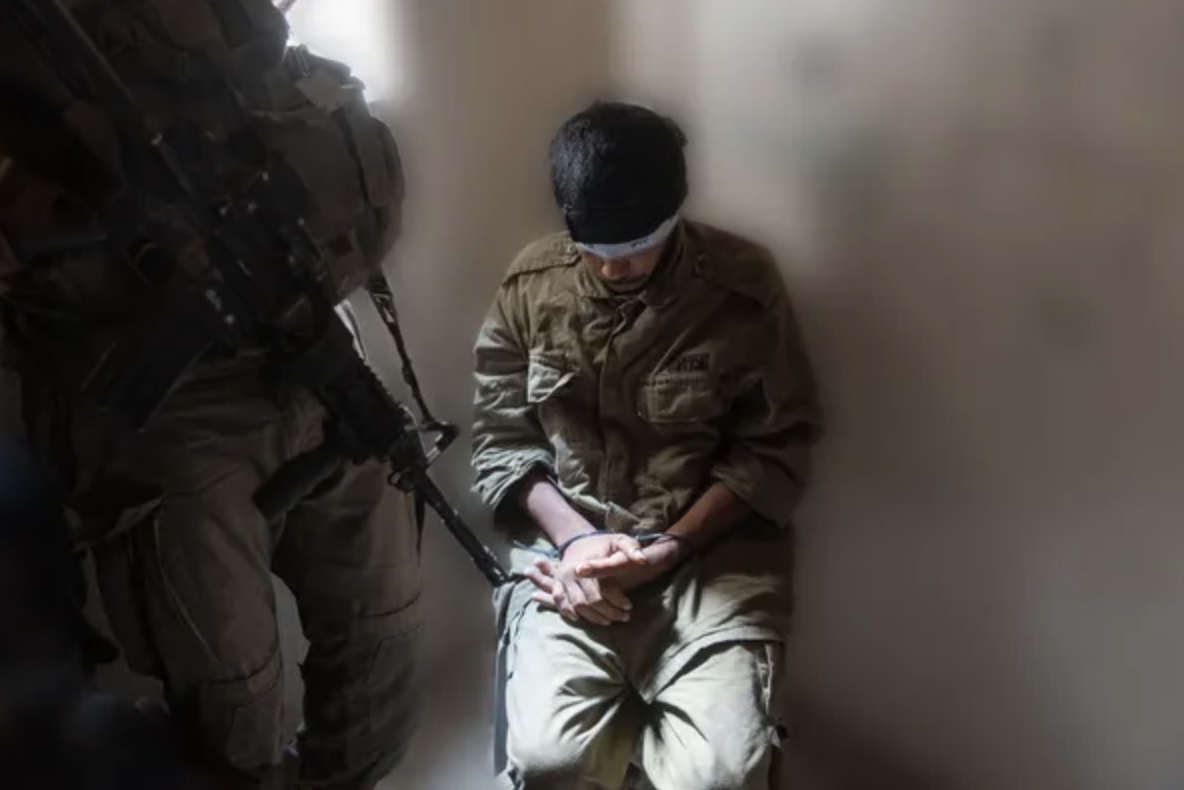
A Gazan dressed in an IDF uniform, handcuffed and blindfolded next to an Israeli soldier in a house in Rafah last month. The photo has been blurred to remove identifying features. Credit: David Bachar
The incidents described to Haaretz occurred in different parts of Gaza, but they are all very similar – as the story of a combat soldier who spent months there reveals. One day, he and his comrades arrived at the brigade commander's building.
The soldier saw someone he didn't recognize walking back and forth, accompanied by soldiers who were guarding him. "He was wearing a uniform without a [flak jacket] and with sports shoes … They asked us to accompany him if he needed to go to the bathroom, and to make sure he had food."
The soldier said he didn't understand what was going on at this stage; he and his fellow soldiers wondered if the Palestinian was a prisoner now collaborating with the IDF.
But the next day, the troops needed to inspect a tunnel, and, viewing a screen, soldiers realized that the Palestinian had been sent inside the tunnel wearing an IDF uniform. His hands were tied behind his back and a camera was attached to his body.
![]()
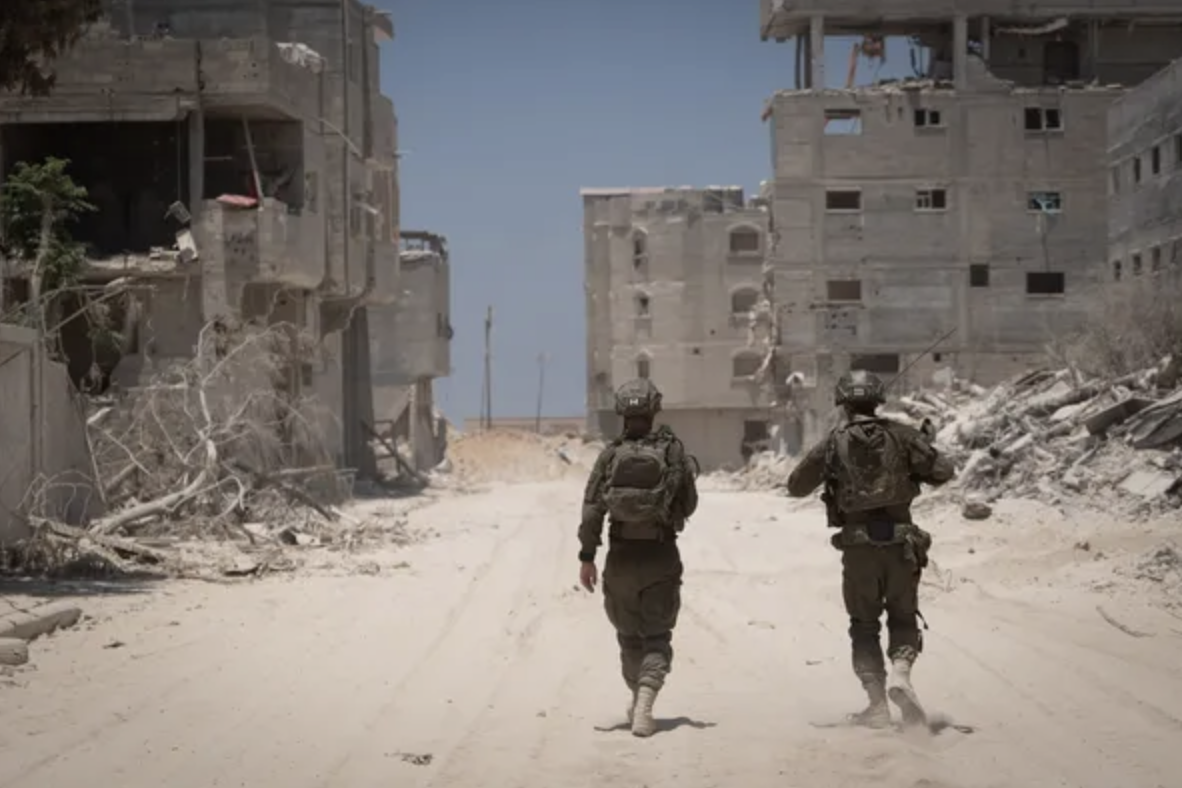
IDF soldiers in Rafah in the southern Gaza Strip last month. Credit: David Bachar
"We heard very deep breaths; it sounded like he was a little afraid," said a soldier who viewed footage of this incident. "They simply sent him in and he mapped it out for the commanders, with the brigade commander watching on the outside."
One soldier said that when soldiers there expressed concerns, they were told that "the idea in general was that if the house was booby-trapped, or if there was an ambush or terrorists were in the area, they would kill [the Palestinian who was sent in] and not the soldiers. That was also the first time the commanders said the word 'shawish.'"
Another soldier in that unit said that this happened time after time; he said that in every operation, a human shield would be sent out 10 minutes before everyone else; then came the wait for the brigade commander.
"People began to ask questions, very quickly a mess began about this procedure," one soldier said. "Some argued that they weren't willing to carry out operations if it included a Gazan who was forced to sacrifice himself. Of course, there were those who supported it, but at least with us there were just a few of them, mostly the commanders who were afraid to deal with the more senior commanders."
![]()
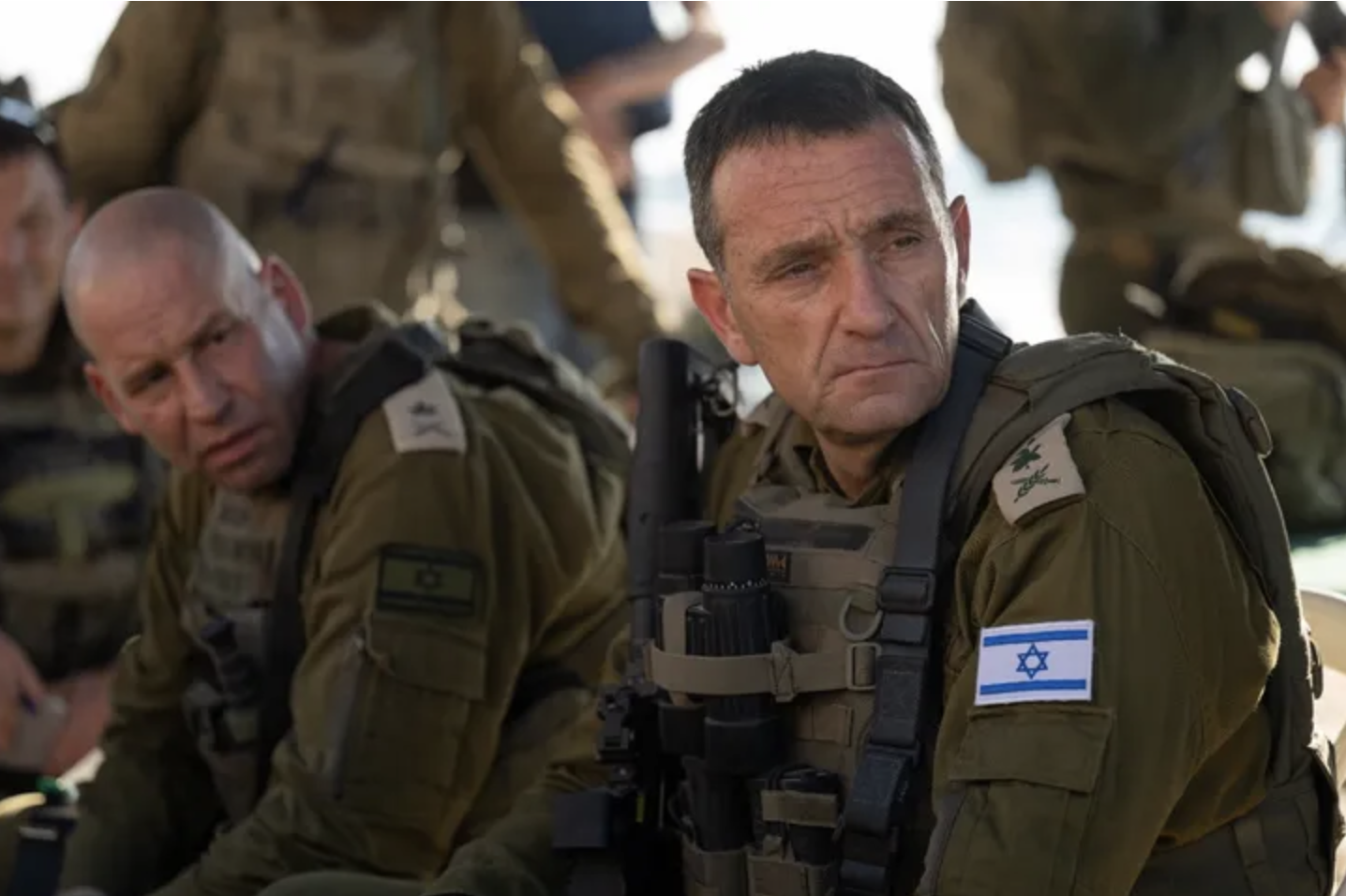
IDF Chief of Staff Herzl Halevi and Southern Command chief Yaron Finkelman in Rafah last month.Credit: Sraya Diamant/IDF Spokesperson's Unit
In one case, an Israeli soldier who took part in a raid on a building said one of the units had a Gazan dressed in white overalls. As part of an attempt to make armed Palestinians inside the building come out, the Gazan was sent there as a kind of mediator. But the attempt failed and the armed men shot the man.
When no doubt exists
Palestinians were already used as human shields in 2002's Operation Defensive Shield in the West Bank during the second intifada. This was often known as "the neighbor procedure" – soldiers fearing booby traps sent Palestinians into buildings; this was also done in the search for wanted men.
Rights groups then petitioned the Supreme Court, serving as the High Court of Justice, which ruled in 2005 that the procedure was illegal and violated international law. The IDF chief of staff at the time, Lt. Gen. Dan Halutz, ordered the military to thoroughly enforce the court's ruling.
But in recent months the IDF has preferred not to comment officially on the matter, even though it was reportedly discussed by the most senior officers. Sources say that IDF Chief of Staff Herzl Halevi is among the senior officers aware of the use of Gazans as human shields.
![]()
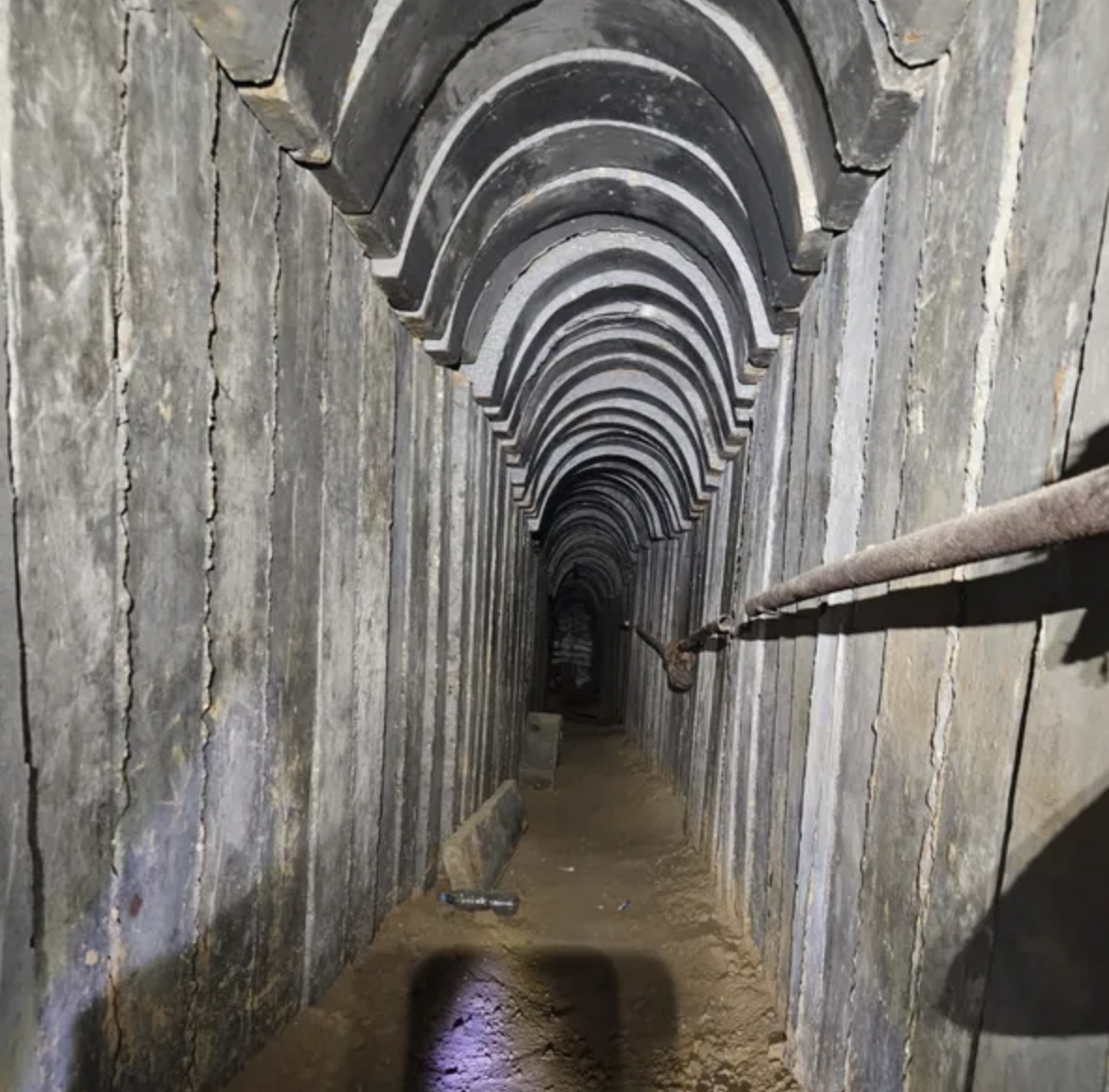
A Hamas tunnel that the IDF destroyed in central Gaza, Saturday. Credit: IDF Spokesperson's Unit
"The head of Southern Command, Maj. Gen. Yaron Finkelman, knows too," a source at Southern Command says. "In every meeting where this issue was raised, there were commanders who warned about the ethical and legal implications if the matter was exposed publicly. There were officers who asked that the meeting be halted so that they would be allowed to leave."
A soldier in a conscript army brigade added: "About five months ago, two Palestinians were brought to us. One was 20 and the other was 16. We were told: 'Use them, they're Gazans, use them as human shields.'"
According to this soldier, that day, soldiers in the unit began to ask questions about this use of civilians as human shields; they also wanted to know who gave the order.
According to the soldier, "They tried to say something about October 7, not something concrete. One person said: 'Don't beat them too much because we need them to open the locations'" where troops need to enter, such as buildings and tunnels.
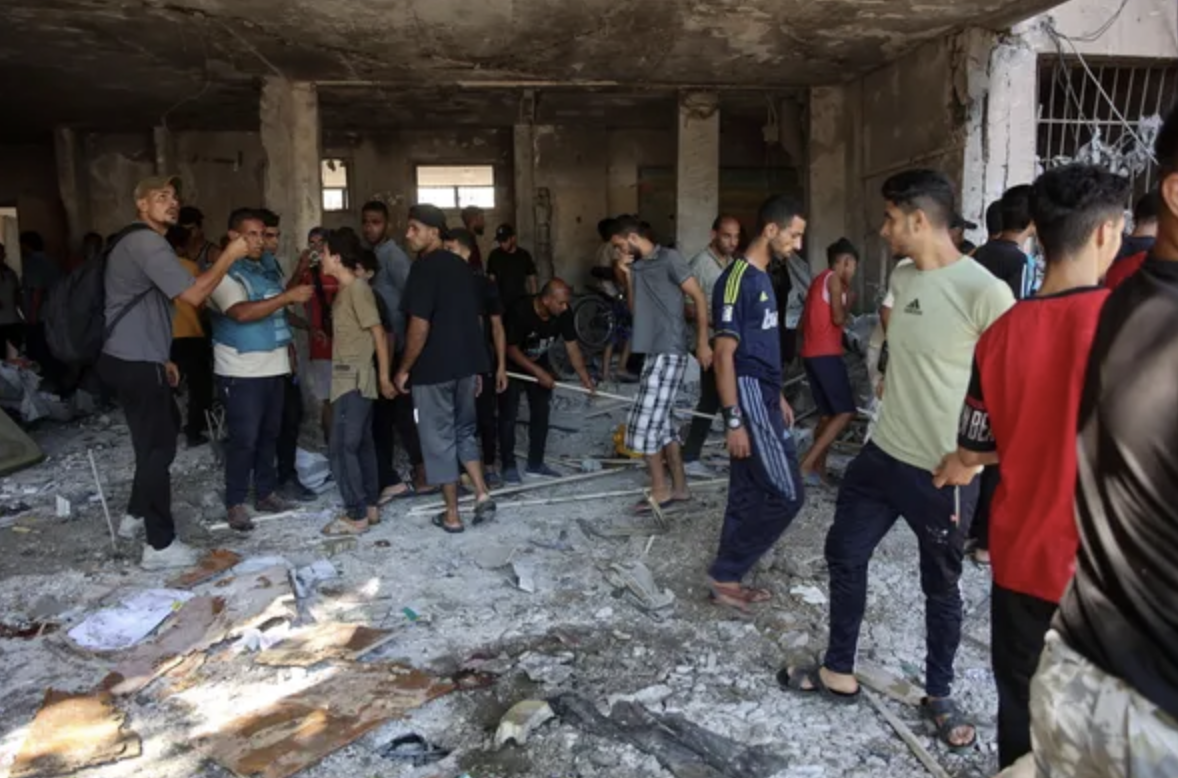
![]()
Palestinians inspecting the damage caused after an Israeli strike in Gaza City last week. Credit: Omar al-Qattaa/AFP
This order was just one that the soldiers received. For example, they were also required to keep the Gazans handcuffed, and to ensure that the Gazans didn't escape or enter the rooms and floors where the commanders were. The Gazans were given combat rations and water.
Many soldiers felt uncomfortable about this, demanded answers and even shouted, said a person who was near one of the Gazans. "Most of them realized there was a problematic incident here, and it was hard for them to process," he said.
He added: "One of the commanders turned to one of the combat soldiers who tried to receive answers and told him: 'You don't agree that the lives of your friends are much more important than their lives? And isn't it better that our friends will live and not be blown up by an explosive device, and that they get blown up by an explosive device?"
This soldier said that the commander's comment was made with such aggressiveness that it was clear that there was little room for the troops to express doubts.
One soldier said that when he and his colleagues asked "why," they were told about the dogs of the Oketz canine unit. Dogs were getting killed or wounded when they were sent in to locate explosives or attack the enemy. Or after their experience, the dogs had to be discharged because their operational senses had deteriorated.
A more senior official confirmed this claim, though some soldiers said they thought this was just an excuse to soothe consciences.
An irrelevant law
Either way, many soldiers still have harsh feelings. "You keep quiet and try to convince yourself, 'Yalla, okay, let's use them.' They tried to explain it rationally, but in the end a 16-year-old kid is sitting there handcuffed inside the house with his eyes covered," a person who was there said.
"The soldiers needed to help him go to the bathroom or feed him. It wasn't an incident that begins and ends with his entering the houses and tunnels or the blowing up of buildings. There's the time you spent with these same people in the house for a few days."
![]()
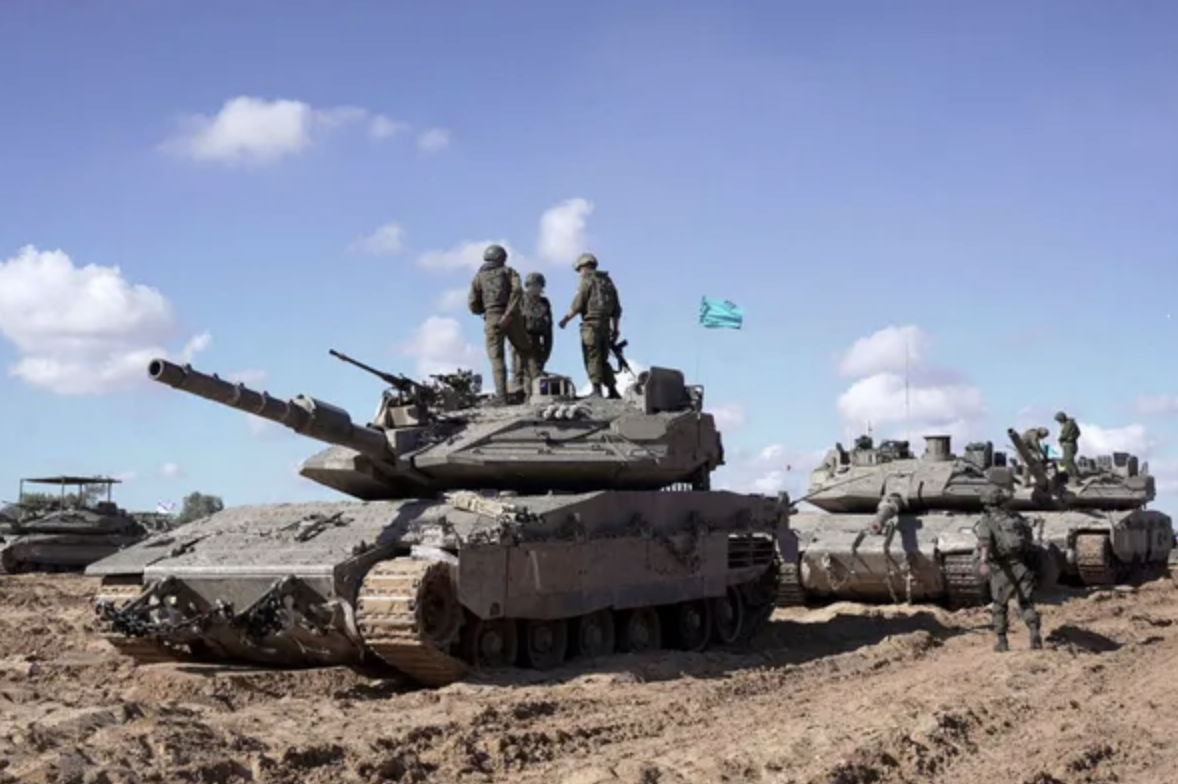
IDF soldiers on the outskirts of Rafah in May.Credit: AFP
After two or three days in which a teenager was used as a human shield by soldiers, they asked to speak with the battalion commander and told him they no longer wished to take part. Some also raised doubts about another issue – the need for the order to burn buildings after the buildings were searched.
The term "international law" came up a number of times, but the battalion commander reportedly had one response to all the soldiers' questions: "A soldier doesn't need to take an interest in the laws of war. You need to think about the IDF's values and act according to the IDF's values, not the laws of war."
The next day the teenager was released. He was taken to a checkpoint and told to walk south. "Then we finally realized that these weren't really terrorists but civilians who were taken especially for these operations," the soldier said.